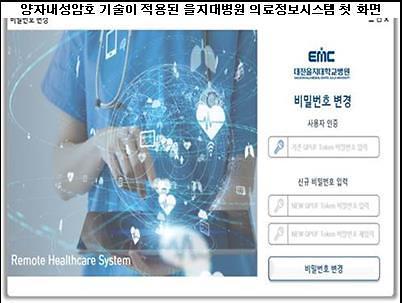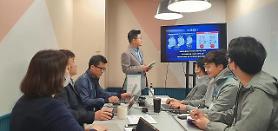
[Courtesy of LG Uplus]
LG Uplus (LGU+) has commercialized post-quantum cryptography (PQC) technology, which refers to cryptographic algorithms that are thought to be secure against an attack by a quantum computer. Cryptographers are designing new algorithms to prepare for a time when quantum computing becomes a threat.
LGU+ said on February 1 that it has teamed up with ICTK Holdings, a transaction and security solution provider, to develop an application that utilizes quantum-resistant cryptography for data transmission and reading of a medical information system Eulji Medical Center. The application proved that quantum-resistant cryptography can be used to protect crucial information in medical fields.
Medical personnel can gain access through the process of authenticating servers and public keys with certificates stored on security chips by connecting USB-type security tokens to personal computers and entering IDs and passwords. "We will establish strong security that is valid in the era of quantum computing in all areas where data is delivered to customers as well as telecommunication networks," said Koo Sung-chul, in charge of LGU+'s wired network business.
In December 2020, LGU+ tested the usefulness of PQC technology by applying it to exclusive commercial lines. Data encoded in a quantum state is virtually unhackable without quantum keys which are basically random number tables used to decipher encrypted information.
Copyright ⓒ Aju Press All rights reserved.



